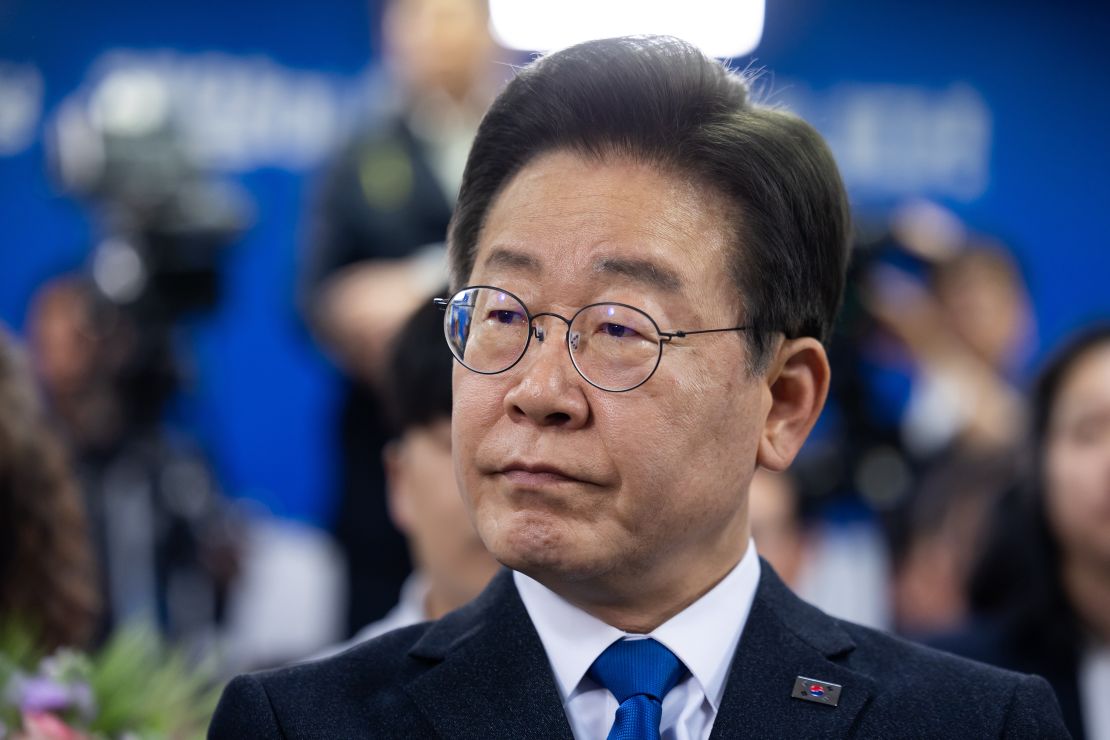Seoul, South Korea – South Korea's liberal opposition won a landslide victory in parliamentary elections on Wednesday, dealing a major blow to President Yoon Suk-yeol and his conservative party but falling short of a majority.
The Democratic Party (DP) is projected to win more than 170 of the 300 seats in the new legislature, with 99% of votes counted as of 5:55 a.m. Thursday (5:55 p.m. ET Wednesday), according to data from the National Election Commission and network broadcasters.
A splinter liberal party considered in coalition with the DP is expected to win at least 10 seats, projections show.
“When the voters elected me, it was your verdict against the Yoon Suk-yeol administration, and you gave the Democratic Party the duty to take responsibility for people's livelihoods and create a better society,” said DP Chairman Lee Jae-myung.
Lee won a seat in the city of Incheon, west of the capital Seoul, against a conservative heavyweight candidate seen as a key ally of the president.
The hotly contested race was seen by some analysts as a vote for Yun, whose popularity has suffered amid a cost-of-living crisis and political scandals.
“Judgment” was a common theme running through the remarks of opposition winners, many of whom campaigned around what they said was Yun's mismanagement of the economy and his refusal to admit wrongdoing when his wife accepted a Dior bag as a gift.
First lady Kim Kyon-hee has not been seen in public since December 15 and was absent when Yoon voted. This reflects the view of some analysts and opposition members that he has become a serious political liability for the President and his PPP.
His People's Power Party (PPP) was predicted to win just over 100 seats, meaning Yun would avoid the two-thirds opposition-controlled super-majority that could override presidential vetoes and pass constitutional amendments.
But by the time the first two years of his five-year single term, allowed by the constitution, expire, some analysts said Yun could slip into a limping position.
The National Election Commission (NEC) was expected to announce the official results later on Thursday. According to the NEC, nearly 29.7 million people or 67% of eligible voters cast their ballots.
Although the numbers were down since the 2022 presidential election that brought Yoon to power, it marked the highest turnout ever for a parliamentary election.

Yoon, who takes office in May 2022, is not up for election this time, but her ability to pass legislation could be badly damaged by her PPP's misdeeds.
He has suffered months of low ratings and has struggled to implement pledges to cut taxes, ease business regulations and expand family support in the world's fastest-aging society.
Mason Richey, a professor at Hankuk University of Foreign Studies, said Yun may now focus more on his foreign agenda, although those plans could also be at risk if the opposition seeks to cut budgets with a majority.
“Given his lame duck status, Yun still needs to focus on foreign policy where he has legitimate authority,” Richey said.
